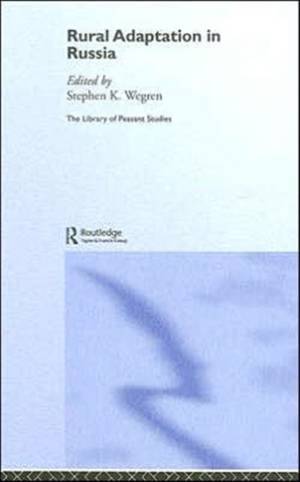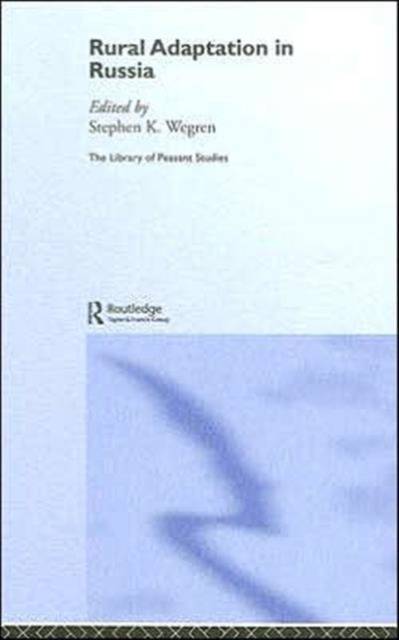
- Afhalen na 1 uur in een winkel met voorraad
- Gratis thuislevering in België vanaf € 30
- Ruim aanbod met 7 miljoen producten
- Afhalen na 1 uur in een winkel met voorraad
- Gratis thuislevering in België vanaf € 30
- Ruim aanbod met 7 miljoen producten
Omschrijving
The current dominant approach to Russian peasant behaviour emphasizes rural resistance to reform in broad terms, and to the introduction of market forces in particular. Bringing together some of the finest scholars on rural Russia, this groundbreaking volume examines this perception with an analysis of both historical and contemporary patterns of rural adaptation in Russia.
Four articles included analyze peasant responses in the post-Soviet era, and focus on:
* the relationship between poverty and rural adaptation
* the social origins of private farmers in southern Russia and Ukraine
* response patterns by large farms (formerly collective and state farms)
* household adaptation using a standardized set of criteria.
This fascinating book gives an illuminating picture of the ways in which peasants respond to new environmental conditions and stimuli created by reform. The substantive material included draws on fieldwork and survey data collected from rural Russia, from the Stolypin reforms in the pre-Soviet era, and collectivisation of agriculture during the 1930s in the Soviet era.
This book was previously as a special issue of The Journal of Peasant Studies.
Specificaties
Betrokkenen
- Uitgeverij:
Inhoud
- Aantal bladzijden:
- 244
- Taal:
- Engels
- Reeks:
Eigenschappen
- Productcode (EAN):
- 9780415701556
- Verschijningsdatum:
- 7/07/2005
- Uitvoering:
- Hardcover
- Formaat:
- Genaaid
- Afmetingen:
- 162 mm x 242 mm
- Gewicht:
- 517 g

Alleen bij Standaard Boekhandel
Beoordelingen
We publiceren alleen reviews die voldoen aan de voorwaarden voor reviews. Bekijk onze voorwaarden voor reviews.










